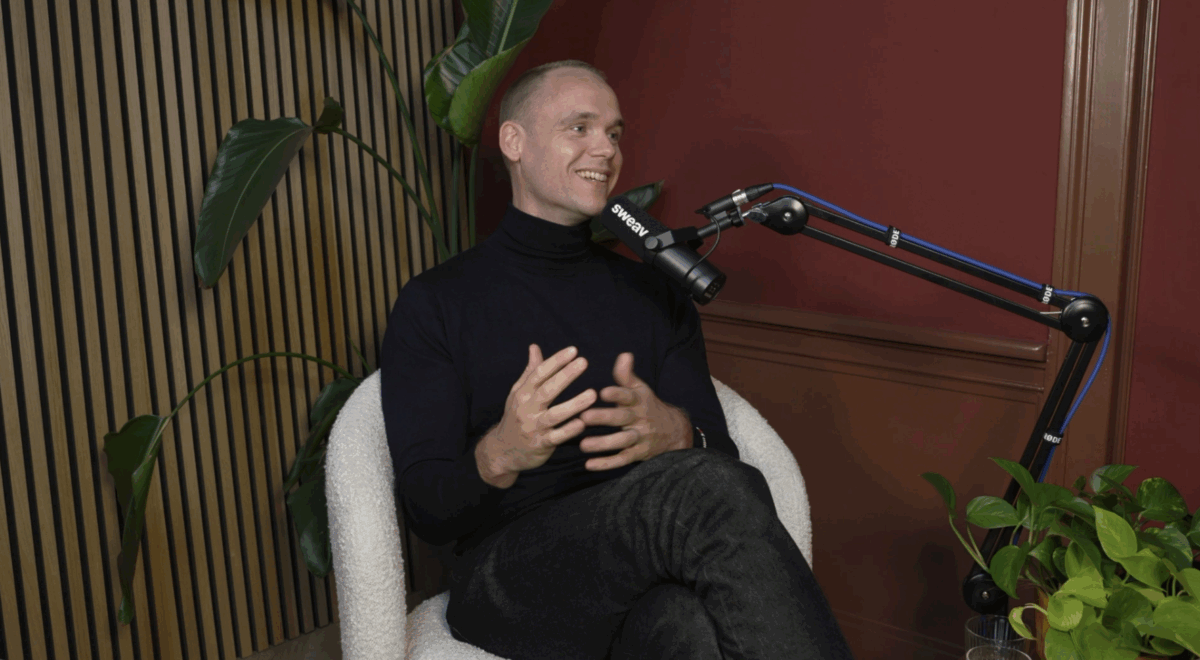


While he doesn’t have the typical background in consultancy or M&A, Victor Peters is Director strategy and M&A at Essent. We wondered; how did he end up there?
This story shares his thoughts on leadership and the parts that are usually undervalued by strategy and M&A professionals, how he manages himself as a father and husband with a high demanding job and his advice on how to move to a career beyond your current expertise.
Get everyone to play the same music.
For me, the most important aspect of successfully implementing strategy is ensuring everyone believes in and connects with the story. I keep challenging people to make sure that they are truly engaged and not leave the room without following through. This is a skill that I trained during the first part of my career as project manager at RMC (a mobility organization in the Netherlands) and have continued to apply in my roles at PostNL and Essent.
An organization is like an orchestra. It takes time to understand the different musicians and instruments, and how to make music. I fully recognize the importance of a strong deck and business case in strategy. But in my humble experience, consultants often leave the organization just before things get messy. The real impact isn’t in composing the sheet music, but in getting everyone to play at the same rhythm.
Pick your moments of truth.
Other important aspects of success are to realize you are hired to solve a problem and to pick your ‘moments of truth’. These successes are key to gain the trust of the people you work with and to prove your own legitimacy in the company.
An example of a moment of truth in my career was when I took on a project at PostNL called ‘Belgium 4.0’, launched for the fourth time and therefore, strong potential to fail. I knew that if I would crack this project, I would prove my worth. I noted that the two board members weren’t talking. The turning point for success was personally engaging with the CFO. Having a good nose for emotions, interests and issues that block progress, together with doing the hard work gets you a long way.
Big corporates are like large boats. They turn very slowly, but when they do, it makes a significant impact. It takes patience, low ego, empathy and perseverance to get everyone on board and keep them aligned. I just keep pulling the strings again and again, while ensuring the strings don’t snap. This way, I deliver lasting results.
I don’t hire people to execute ‘my’ work.
I invest significant time in building strong relationships with my team. This is important as I try to empower them through autonomy. The 20 people in my teams are granted the freedom to take full ownership to get the job done in their own way. My role is to have their back, make sure they are well equipped and make them feel safe; safe to ask questions and safe to make mistakes. This type of leadership is usually undervalued but maximizes the team’s potential and sets them up for success.
Some ex-consultants who joined my team were a little lost at first. They were used to working with strict instructions, deadlines and frameworks and had to adjust to this level of freedom. I don’t hire people to execute ‘my’ work. I employ them to come up with the right solutions and contribute with new ideas in strategy and M&A. That’s also why I like to work with the freelance professionals at Sweav.
Life is what happens to you while you are busy making other plans.
Life is not plannable and therefore, it’s very important to know yourself well. Know what makes you tick, your pitfalls and your talents and be open about it. Understand when you perform at best and set your boundaries. I stopped working at night; I’d rather wake up early to finish a project. While everyone started their career at a consultancy firm or doing a management traineeship, I started at a taxi company. This was my path where I learned the right skills for my ambitions. Deep down you know your ambitions and your deliverables that will set you up for success.
When you combine family life with a high demanding job, it’s all about communication, flexibility and openness. Basic communication is not enough; you have to give subtitles to clarify intentions and manage expectations.
Openness also benefits at work, especially when you establish strong relationships with your teams. Recently, when we were in the middle of a very busy period, one of my team members came to me and asked “Victor, you seem a bit off, are you ok?”. How cool is it to have people around you that support you and who also have your back?
Dress for the job you aspire, not the one you have.
If you aspire to a career outside your experience or expertise, it’s important to be bold and creative. Start doing what you want to do in your current role instead of waiting for the perfect opportunity. Recently, someone who is currently working at another department came to me and asked if he could participate in a strategy project. I love that kind of forward thinking. He was clearly thinking one step ahead and preparing for the job he aspired to; that will help him succeed.





